Let’s take a look at the effect first:

Hallo.js is a simple rich text web editor based on jQuery UI and uses HTML5 contentEditable to achieve WYSIWYG. The goal is not to replace today's very popular editors such as TinyMCE or Aloha Editor, but to provide developers with a simpler and more enjoyable user editing experience.
Hallo.js is a free software developed by Henri Bergius for the IKS project. It is developed using CoffeeScript, follows the MIT license agreement, and is hosted on GitHub.
How to use
1. You need to introduce jQuery, jQuery UI and Rangy libraries into your project:
<script src="js/jquery.min.js"></script> <script src="js/jquery-ui.min.js"></script> <script src="js/rangy-core.js"></script>
The editor toolbar uses jQuery UI themes, so you may also want to customize a theme to suit your needs. The toolbar icon font is based on Font Awesome. Styled toolbar appears in the demo, you will also want to add some CSS (such as background and borders) to the class hallotoolbar.
<link rel="stylesheet" href="/path/to/your/jquery-ui.css"> <link rel="stylesheet" href="/path/to/your/font-awesome.css">
Introducing Hallo.js
<script src="hallo.js"></script>
Calling the plug-in is very simple
jQuery('p').hallo();
You can also turn off the editing function of tags
jQuery('p').hallo({editable: false});
Hallo itself can only make selected DOM elements editable and does not provide any formatting tools. The format is to initialize Hallo by loading the plug-in. Even simple things like bold and italics plugins:
jQuery('.editable').hallo({
plugins: {
'halloformat': {}
}
});
This example makes a simple formatting plugin that provides features like bold and italics. You can have as many good plugins as you want and choose from them if necessary.
Hallo has more options to set when instantiated. See the documentation hallo.coffee file.
Event method
Hallo has some events to help with integration and calling. You can subscribe to them using jQuery bind:
- halloenabled: Triggered when an editable is enabled (editable set to true)
- hallodisabled: Triggered when an editable is disabled (editable set to false)
- hallomodified: Triggered whenever user has changed the contents being edited. Event data key content contains the HTML
- halloactivated: Triggered when user activates an editable area (usually by clicking it)
- hallodeactivated: Triggered when user deactivates an editable area
Plugin
- halloformat – Adds Bold, Italic, StrikeThrough and Underline support to the toolbar. (Enable/Disable with options: “formattings”: {“bold”: true, “italic”: true, “strikethrough ”: true, “underline”: false})
- halloheadings – Adds support for H1, H2, H3. You can pass a headings option key to specify what is going to be displayed (e.g. “formatBlocks”:[“p”, “h2″, "h3"])
- hallojustify – Adds align left, center, right support
- hallolists – Adds support for ordered and unordered lists (Pick with options: “lists”: {“ordered”: false, “unordered”: true})
- halloreundo – Adds support for undo and redo
- hallolink – Adds support to add links to a selection (currently not working)
- halloimage – Image uploading, searching, suggestions
-
halloblacklist – Filtering unwanted tags from the content
Write a plug-in
The Hallo plug-in is used to write regular jQuery UI plug-ins.
When Hallo loads it also loads all enabled plugins of the unit and passes them some additional options:
- editable: The main Hallo widget instance
- uuid: unique identifier of the Hallo instance, can be used for element IDs
A simple plugin looks like the following:
# Formatting plugin for Hallo
# (c) 2011 Henri Bergius, IKS Consortium
# Hallo may be freely distributed under the MIT license
((jQuery) ->
jQuery.widget "IKS.halloformat",
boldElement: null
options:
uuid: ''
editable: null
_create: ->
# Add any actions you want to run on plugin initialization
# here
populateToolbar: (toolbar) ->
# Create an element for holding the button
@boldElement = jQuery '<span></span>'
# Use Hallo Button
@boldElement.hallobutton
uuid: @options.uuid
editable: @options.editable
label: 'Bold'
# Icons come from Font Awesome
icon: 'icon-bold'
# Commands are used for execCommand and queryCommandState
command: 'bold'
# Append the button to toolbar
toolbar.append @boldElement
cleanupContentClone: (element) ->
# Perform content clean-ups before HTML is sent out
)(jQuery)
The above is a detailed introduction to the Hallo.js rich text editor. I hope it will be helpful to everyone's learning.
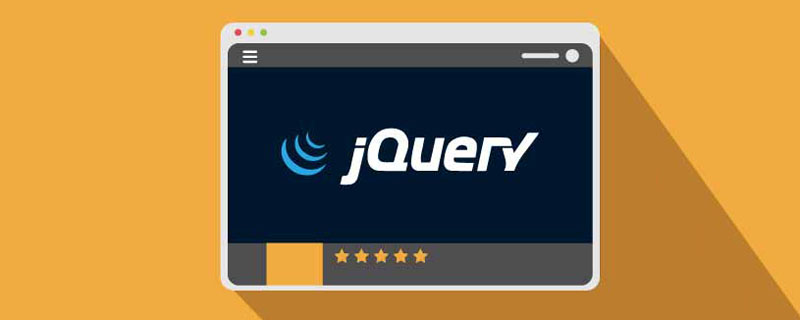 jquery实现多少秒后隐藏图片Apr 20, 2022 pm 05:33 PM
jquery实现多少秒后隐藏图片Apr 20, 2022 pm 05:33 PM实现方法:1、用“$("img").delay(毫秒数).fadeOut()”语句,delay()设置延迟秒数;2、用“setTimeout(function(){ $("img").hide(); },毫秒值);”语句,通过定时器来延迟。
 jquery怎么修改min-height样式Apr 20, 2022 pm 12:19 PM
jquery怎么修改min-height样式Apr 20, 2022 pm 12:19 PM修改方法:1、用css()设置新样式,语法“$(元素).css("min-height","新值")”;2、用attr(),通过设置style属性来添加新样式,语法“$(元素).attr("style","min-height:新值")”。
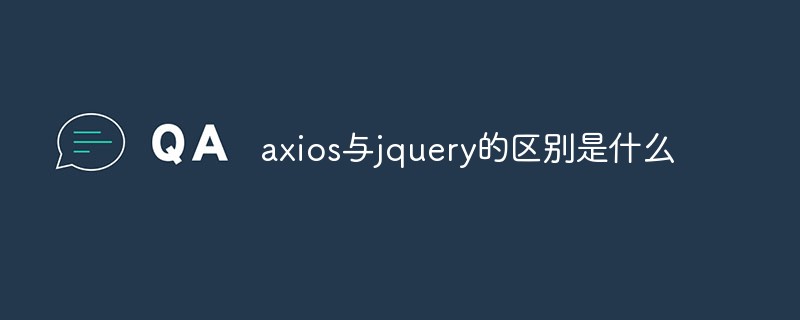 axios与jquery的区别是什么Apr 20, 2022 pm 06:18 PM
axios与jquery的区别是什么Apr 20, 2022 pm 06:18 PM区别:1、axios是一个异步请求框架,用于封装底层的XMLHttpRequest,而jquery是一个JavaScript库,只是顺便封装了dom操作;2、axios是基于承诺对象的,可以用承诺对象中的方法,而jquery不基于承诺对象。
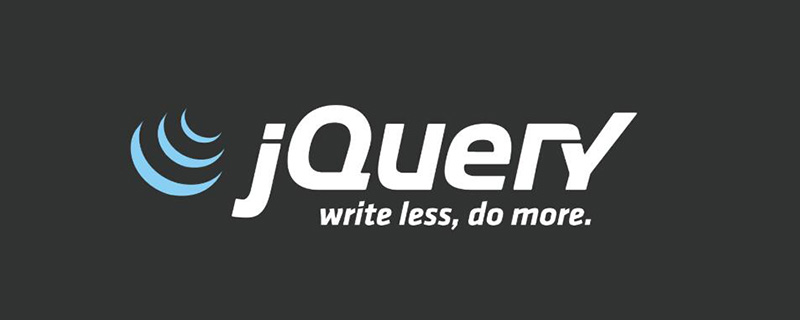 jquery怎么在body中增加元素Apr 22, 2022 am 11:13 AM
jquery怎么在body中增加元素Apr 22, 2022 am 11:13 AM增加元素的方法:1、用append(),语法“$("body").append(新元素)”,可向body内部的末尾处增加元素;2、用prepend(),语法“$("body").prepend(新元素)”,可向body内部的开始处增加元素。
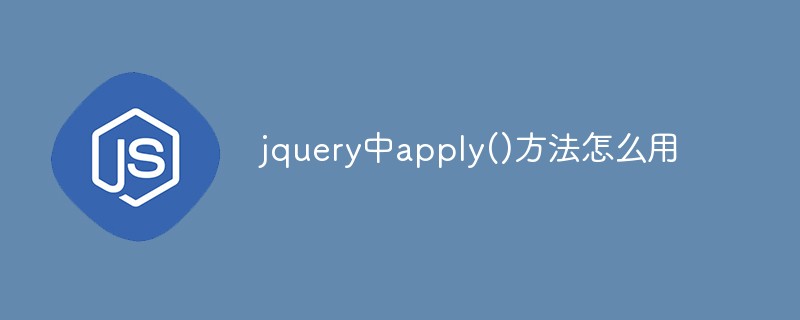 jquery中apply()方法怎么用Apr 24, 2022 pm 05:35 PM
jquery中apply()方法怎么用Apr 24, 2022 pm 05:35 PM在jquery中,apply()方法用于改变this指向,使用另一个对象替换当前对象,是应用某一对象的一个方法,语法为“apply(thisobj,[argarray])”;参数argarray表示的是以数组的形式进行传递。
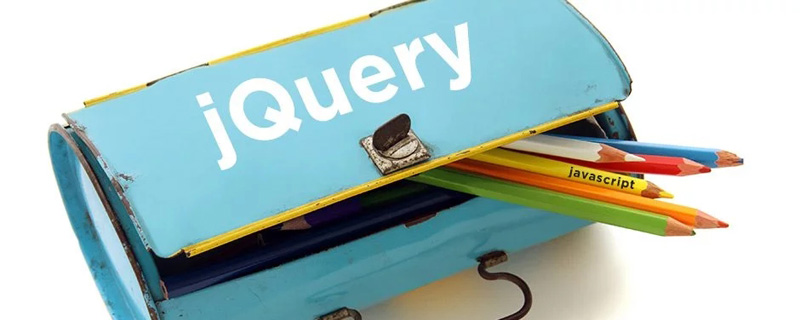 jquery怎么删除div内所有子元素Apr 21, 2022 pm 07:08 PM
jquery怎么删除div内所有子元素Apr 21, 2022 pm 07:08 PM删除方法:1、用empty(),语法“$("div").empty();”,可删除所有子节点和内容;2、用children()和remove(),语法“$("div").children().remove();”,只删除子元素,不删除内容。
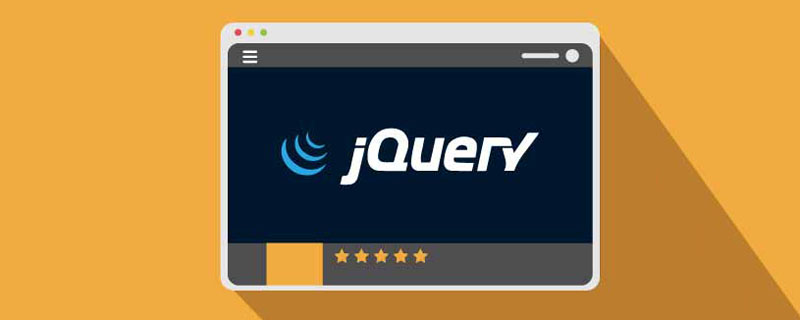 jquery on()有几个参数Apr 21, 2022 am 11:29 AM
jquery on()有几个参数Apr 21, 2022 am 11:29 AMon()方法有4个参数:1、第一个参数不可省略,规定要从被选元素添加的一个或多个事件或命名空间;2、第二个参数可省略,规定元素的事件处理程序;3、第三个参数可省略,规定传递到函数的额外数据;4、第四个参数可省略,规定当事件发生时运行的函数。
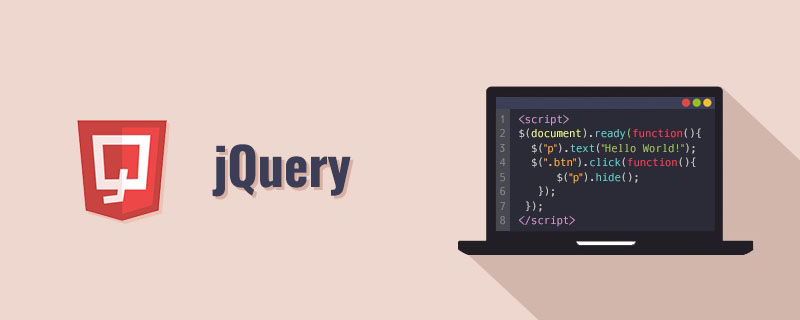 jquery怎么去掉只读属性Apr 20, 2022 pm 07:55 PM
jquery怎么去掉只读属性Apr 20, 2022 pm 07:55 PM去掉方法:1、用“$(selector).removeAttr("readonly")”语句删除readonly属性;2、用“$(selector).attr("readonly",false)”将readonly属性的值设置为false。


Hot AI Tools

Undresser.AI Undress
AI-powered app for creating realistic nude photos

AI Clothes Remover
Online AI tool for removing clothes from photos.

Undress AI Tool
Undress images for free

Clothoff.io
AI clothes remover

AI Hentai Generator
Generate AI Hentai for free.

Hot Article

Hot Tools

Dreamweaver Mac version
Visual web development tools

SAP NetWeaver Server Adapter for Eclipse
Integrate Eclipse with SAP NetWeaver application server.

Atom editor mac version download
The most popular open source editor

VSCode Windows 64-bit Download
A free and powerful IDE editor launched by Microsoft

SublimeText3 Chinese version
Chinese version, very easy to use






